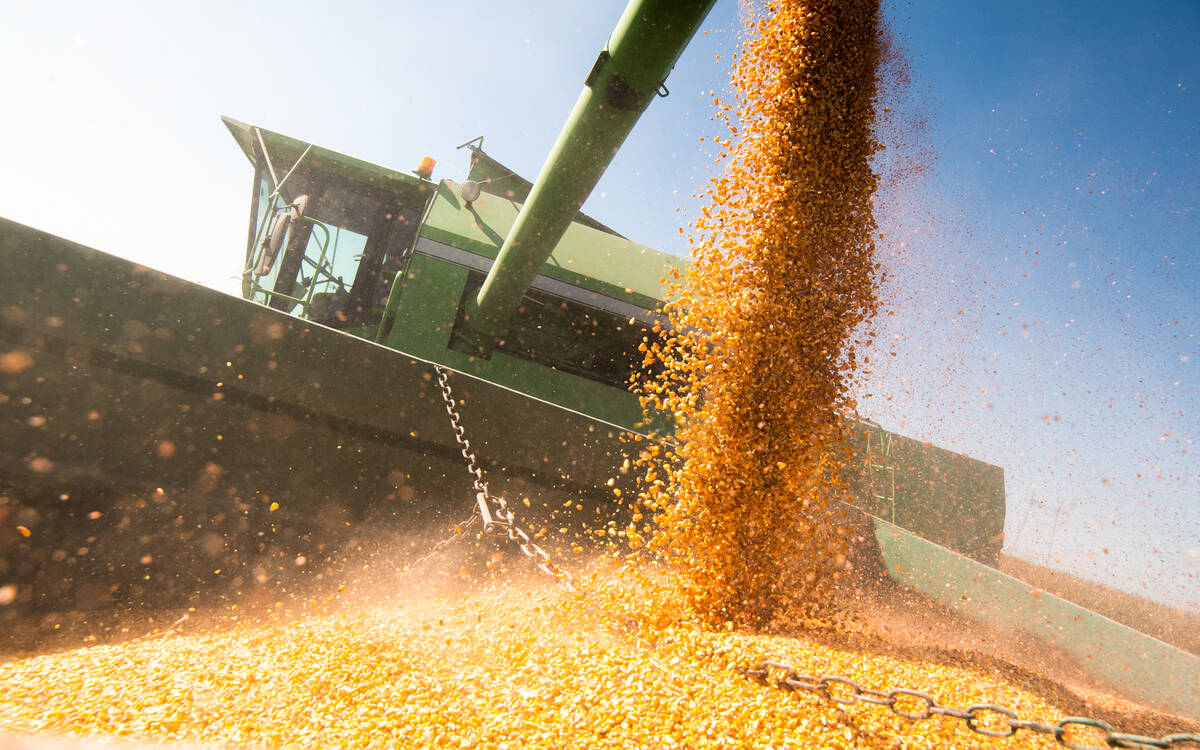U.S. seed and ag chem firm Monsanto will take its first steps into wheat breeding by buying Montana wheat germplasm company WestBred for US$45 million.
But the St. Louis-based buyer, clearly mindful of the furore over the plans for genetically-modified wheat that it scrapped in 2004, stresses that its immediate goals don’t involve applying its Roundup Ready herbicide-tolerant trait or other genetic modifications to wheat seed.
Through this deal, the company said in a release Tuesday, “researchers will be able to apply Monsanto’s expertise in conventional and marker-assisted breeding tools to develop better-yielding varieties for U.S. farmers using WestBred’s germplasm as a foundation.
Read Also

Feed Grain Weekly: Corn affecting barley prices in Lethbridge
Corn imports entering Lethbridge have lowered prices for feed barley compared to those in Edmonton.
“These seeds will serve as the foundation for the development of new biotechnology traits, which will initially focus on drought tolerance, nitrogen use and higher yield.”
However, it said, “biotechnology will be a longer-term prospect, consistent with the company’s eight- to 10-year development cycle.”
Furthermore, it said, “Monsanto will also explore herbicide-tolerance and disease-resistance opportunities to meet wheat farmers’ needs, but the company’s plans do not include further development of the first-generation Roundup Ready trait in wheat.”
As well, a spokesperson for Monsanto later said the U.S. transaction has “no immediate direct implications for Canada.”
“Safe, affordable”
“We believe we have game-changing technologies — like our drought-tolerance and improved-yield traits — that can meaningfully address major challenges wheat growers face every season,” Carl Casale, executive vice-president of global strategy and operations for Monsanto, said in the company’s release.
“The capabilities we’ve built in both breeding and biotechnology for our core crops are highly transferable to wheat, providing a significant jumpstart to our wheat technology platform,” he said.
“Given the geographies where wheat is grown, it is a crop particularly challenged by the core issues of water availability and fertilizer efficiency. We believe we have the technology tools today to help wheat farmers meaningfully address these challenges and help create a safe, affordable supply of wheat.”
Monsanto said WestBred’s existing breeding capabilities and commercial operations will become the “centrepiece” of the wheat platform for Monsanto, which also plans to seek “public and private partnerships” to improve wheat technology for farmers.
“As WestBred looked at the wheat industry, we saw a need for technology infusion to be competitive with other crops farmers are growing,” said Ron Ueland, president of Butte-based WestBred, which is owned by Barkley Seed, based in Yuma, Ariz.
According to statements on its website accompanying the WestBred announcement, Monsanto said it exited the wheat seed business and scrapped its biotech wheat research in 2004 “due to the dramatic decline of planted spring wheat acreage as well as, in large part, due to a lack of industry alignment for the company’s technology being applied to wheat.”
Thus, the company said, “we decided to defer efforts to develop Roundup Ready wheat in order to focus on and accelerate the development of new and improved traits in corn, cotton and oilseeds.
“This was a business decision based on the economics of bringing this particular product to market at that time relative to alternative investments that were more attractive.”
“Acceptance and discussion”
However, Monsanto said on its site, “over the last several years, there has been a growing acceptance and discussion around the need for technology investment in wheat in order to meet future demands.
“In 2009, wheat organizations in the U.S., Canada and Australia outlined their support for more efficient, sustainable and profitable production of wheat around the world — including their thoughts on the commercialization of biotechnology in wheat.”
The Grain Growers of Canada, Western Canadian Wheat Growers Association and Alberta Winter Wheat Producers Commission in May were among the signatories to what they called an “accord” with wheat growers’ groups in Australia and the U.S. on “the need for the synchronized introduction of biotech wheat.”
However, the groups’ joint statement soon drew return fire from a number of farmer, consumer and “civil society” groups including Canadian organizations such as the National Farmers Union, Canadian Biotechnology Action Network, Union Paysanne, Union Biologique Paysanne, Reseau Quebecois contre les OGM and the Saskatchewan Organic Directorate.
“We refuse to allow industry groups to restart any campaign to commercialize (genetically engineered) wheat,” they said. NFU spokesman Terry Boehm called GE wheat “a potential disaster of huge proportions.”
Farm groups and agencies such as the Canadian Wheat Board have previously contended that introduction of biotech wheat, without significant market acceptance or a functioning system to segregate it from conventional wheats, would jeopardize farmers’ export and domestic markets alike for the conventional crop.
— The “Editors’ Picks” feature will highlight eyebrow-raising and unusual-yet-true news from the world of farming, as gleaned from various sources by the editorial staff of the Farm Business Communications division.















